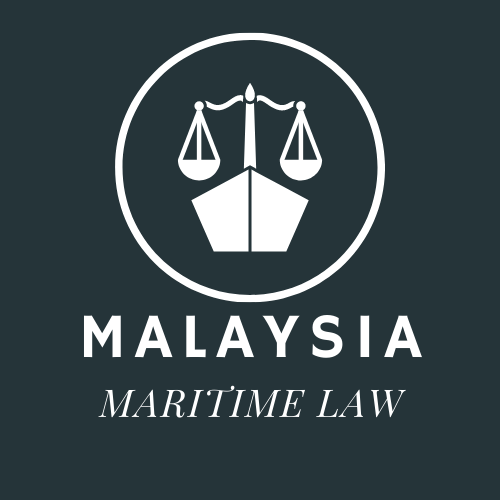Ownership And Management
1. Registration Of Ships And Ownership
Ship registration has two functions. The first concerns the public law character of ship registration. This includes:
a) the right of a ship to fly the flag
b) freedom of navigation in the high seas without interference from foreign ships
c) the entitlement to protection by the flag state’s navy
d) the right of diplomatic protection and consular assistance
e) rights in the territorial sea of the flag state (for example fishing or marine research)
f) application of the rules of war where the flag state is at war.
The second role of ship registration concerns the private law aspects of ownership and security. Under English law the Merchant ShippingAct 1995 (MSA 1995) provides for the creation of a ship registry and sets out the general provisions for the registration of British ships.
The Merchant Shipping (Registration of Ships) Regulations 1993 (SI 1993/3138) provide for the detail for registration.
A ship is entitled to be registered in the UK Register if it is owned by a ‘qualified owner’ and satisfies the requirements under the MSA 1995 and the regulations.
The following categories of legal and physical persons are defined as ‘qualified owners’ and can register a ship as a British ship:
a) A citizen of the UK or one of the British dependent territories or a British overseas citizen or a citizen of an EU member state exercising rights under Arts.48 or 52 of the EU Treaty in the UK.
b) A company incorporated in one of the European Economic Area (EEA) countries or in any British overseas possession which has its principal place of business in the UK or those possessions, or a company in an European Economic Interest Grouping (EEIG).
To do this they have to be either the owners or the bareboat charterers of the ship.
If none of the registering persons are resident in the UK, a representative individual resident in the UK or a representative company incorporated in one of the EEA countries with a place of business in the UK must be appointed.
The flag state is obliged to exercise jurisdiction and control foradministrative, technical and social matters (UNCLOS, Art.91) and has jurisdiction with regard to any offences committed on the ship (The Oteri v The Queen).
The flag state has extensive obligations to ensure the seaworthiness and the safety of the ship. These obligations are detailed in international regulations and the flag state has to ensure their implementation. International regulations are agreed by the state members of the International Maritime Organisation (IMO), some of them are passed by diplomatic conferences and eventually may be ratified by the states as international conventions, others are agreed within the IMO Committees and introduced as amendments to existing conventions.
Implementation of these regulations by flag states is achieved through surveys and inspections of the ships prior to registration and at regular intervals thereafter. These tasks are undertaken by the maritime authorities of the flag state and performed by that authority, or by other recognised organisations. These are normally classification societies contracted by flag states to provide surveying and certification services concerning the appropriate implementation of international shipping regulations. The compliance with such regulations is confirmed by the issuance of appropriate certificates.
When ships visit ports, their certificates are inspected and, if in order, they are accepted as proof of compliance. However, the port state official, if they identify irregularities or suspect deficiencies in the ship, may inspect the ship, fine it or detain it, depending on the seriousness of the deficiency. They always have to report such deficiencies to the flag state.
The entry of a ship into a port presumes that the ship complies not only with the IMO regulations but also with national requirements imposed by the coastal state. Thus, in European ports regulations passed by the European Commission in the form of Directives or Regulations are also applicable.
2. Management Of Ships
A whole range of activities is undertaken by managers. Commercial management includes chartering and marketing, technical management is separate and deals with operations, while the third aspect of management deals with recruitment of crew, otherwise known as crewing management. A manager company may carry out all of these activities.
There are standard terms of agreements about each of these management aspects from which the manager derives their authority and their duties are defined; see the examples of cases provided. Like any commercial agreement, there are specific consequences provided contractually for breach of the agreement as well as contractual exclusions or limitation of liability. The managers have an additional duty nowadays to ensure that the ships under their management are compliant with the international safety regulations as provided under the International Safety Management Code (ISM Code).
3. International Safety Management Code (ISM Code) And Possible Liabilities
The implementation of the ISM Code is made mandatory through Chapter IX of the Safety of Life at Sea Convention 1974. The Code as such does not impose liabilities for non-compliance; non-compliance will simply result in the withdrawal or suspension of the relevant certificates which are required for the ship’s trading. However, the statutory instrument which enacts the Code into the law of a country imposes penalties upon the designated person, the master of the ship and the board of the company’s directors in the event of non- compliance with the Code’s provisions.
In addition, the fact that the Code requires the recording of information with regard to all incidents that occur during the operation of ships has implications for potential liabilities of the relevant company and those who make the decisions at board level.
For such liabilities to be attributed to the company, the persons who make the decisions for the company must be identified and their liability be established in accordance with certain legal rules.
- For further enquiries or clarification, kindly contact us.

